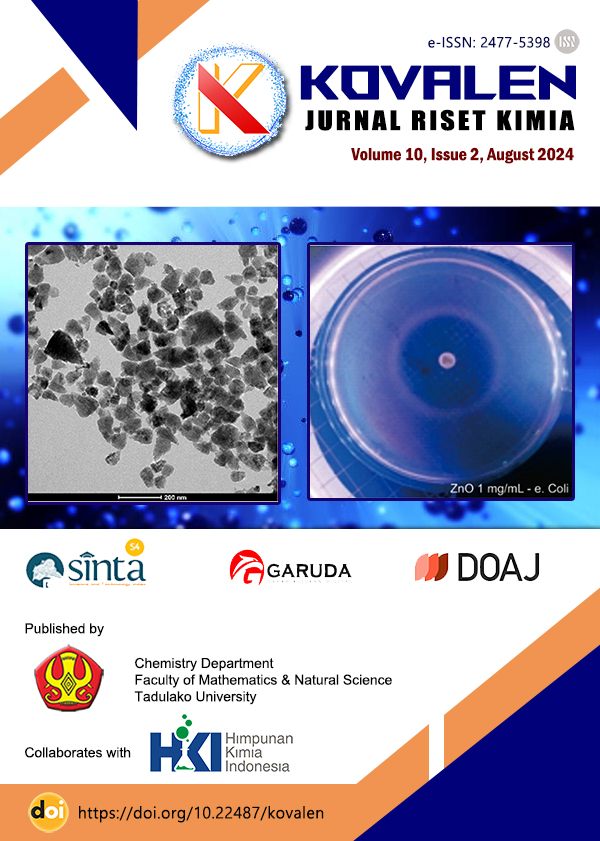Main Article Content
Abstract
Numerous ZnO nanoparticles have been successfully synthesized using diverse plant extracts, yet research utilizing B. rotunda extract as a capping agent with microwave assistance has been lacking. Hence, this study aimed to employ microwave-assisted B. rotunda extract to produce ZnO nanoparticles and test their antibacterial activity. By utilizing 10 mL of 1% (m/v) B. rotunda extract at pH 12.5 and calcinating for 3.8 hours at 200°C, coupled with 20 minutes of microwave treatment, ZnO nanoparticles averaging 78.78 nm in diameter were synthesized. Particle size was determined using the ImageJ software to analyze TEM images. UV-Vis absorption spectroscopy indicated a peak wavelength at 360 nm, while FTIR analysis identified compounds from B. rotunda extract crucial in nanoparticle formation. Antibacterial testing revealed the nanoparticles' ability to create an inhibition zone against E. coli growth.

